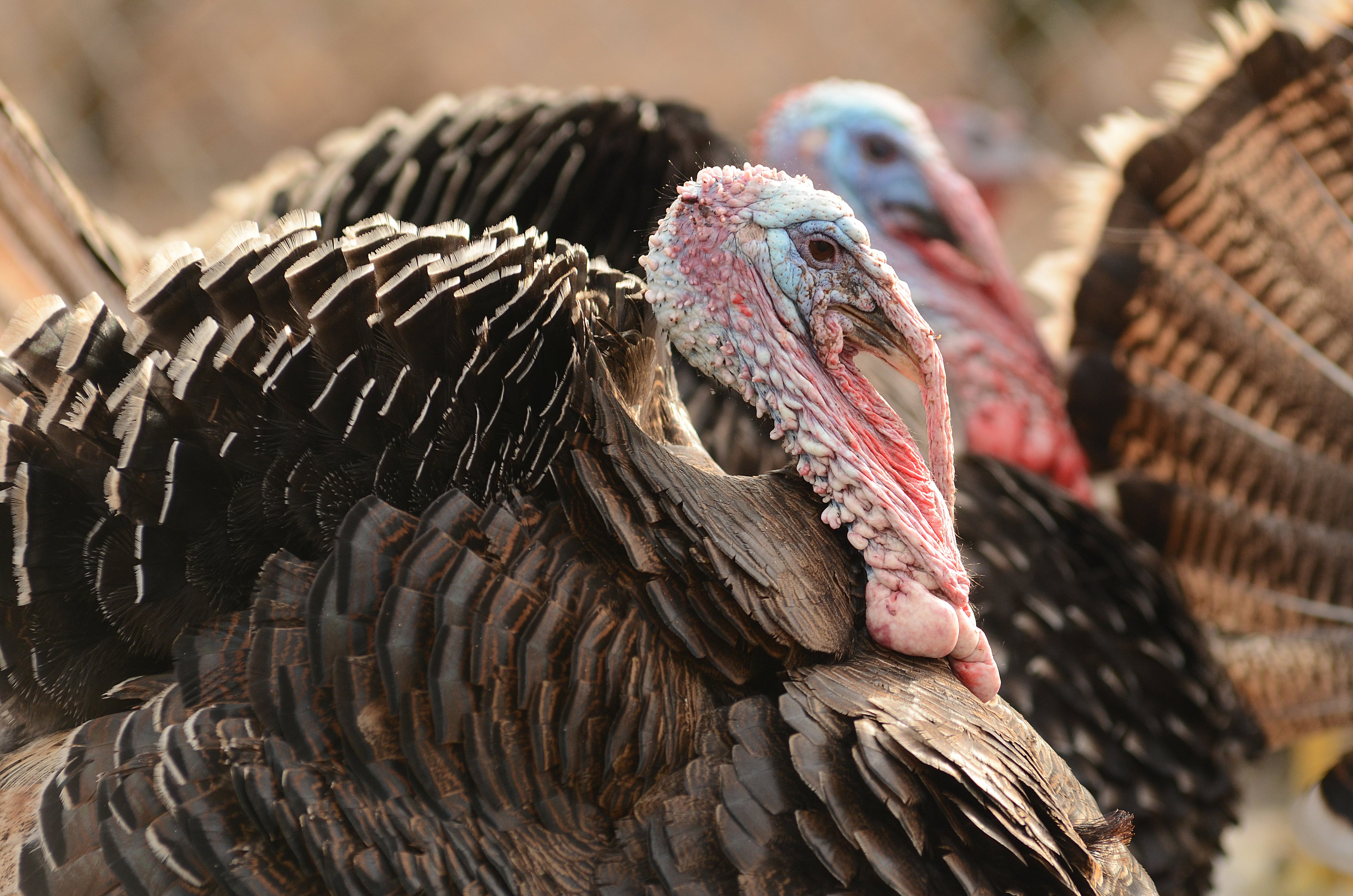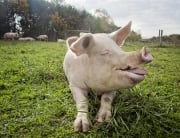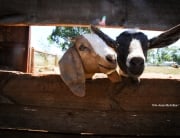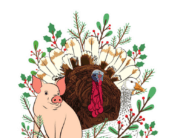“For every beast of the forest is mine, the cattle on a thousand hills. I know all the birds of the hills, and all that moves in the field is mine.” —Psalm 50:10-11
Many people think of turkeys as little more than holiday centerpieces, but turkeys are social, playful birds, and they enjoy the company of others. They relish having their feathers stroked, and they like to chirp, cluck, and gobble along to their favorite tunes. Anyone who spends time with these birds quickly learns that God created turkeys as varied in personality as the dogs and cats who share our homes with us.
Fascinating Turkey Facts
- Turkeys have been genetically modified to gain weight rapidly because fatter turkeys mean fatter wallets for farmers. But in nature, the turkey’s athletic prowess is quite impressive. Wild turkeys can fly at speeds of up to 55 miles per hour and run at speeds of up to 25 miles per hour. The natural lifespan of the turkey is up to 10 years, but on factory farms,they’re slaughtered when they’re just 5 months old.
- When they aren’t forced to live on filthy factory farms, turkeys will spend their days caring for their young, building nests, foraging for food, taking dust baths, preening themselves, and roosting high in trees.
- People who care for turkeys at sanctuaries often call them “natural detectives.” They’re naturally curious, always checking out new sights and smells, and they enjoy greeting visitors.
- Male turkeys, or “toms,” are bigger and have more colorful plumage than female turkeys, or “hens.” The males attract females with their wattles (colorful flaps of skin around their necks) and tufts of bristles or beards that hang from their chests.
- Turkeys are born with full-color vision just like our own, and in nature, they stay with their mothers for up to the first five months of their lives. These gentle birds are very bonded to their young—in the wild, a mother turkey will courageously defend her family against predators.
Erik Marcus, author of Vegan: The New Ethics of Eating, has spent a considerable amount of time with turkeys on farm sanctuaries. He reports, “Turkeys remember your face and they will sit closer to you with each day you revisit. Come back day after day and, before long, a few birds will pick you out as their favorite and they will come running up to you whenever you arrive. It’s definitely a matter of the birds choosing you rather than of you choosing the birds. Different birds choose different people.
This year, why not choose to celebrate God’s creation by having a cruelty-free Thanksgiving? Take a pledge not to eat turkeys this Thanksgiving, and instead enjoy these delicious holiday recipes with friends and family throughout your holiday season.







